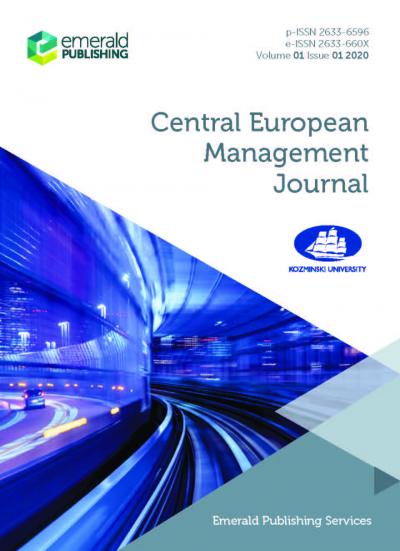Competency-Based Tests as a Tool for Teacher Evaluation in Higher Education Institutions
Kamila Ludwikowska
Wrocław University of Science and Technology
9/2022 30 (3) Central European Management Journal
DOI 10.7206/cemj.2658-0845.83








